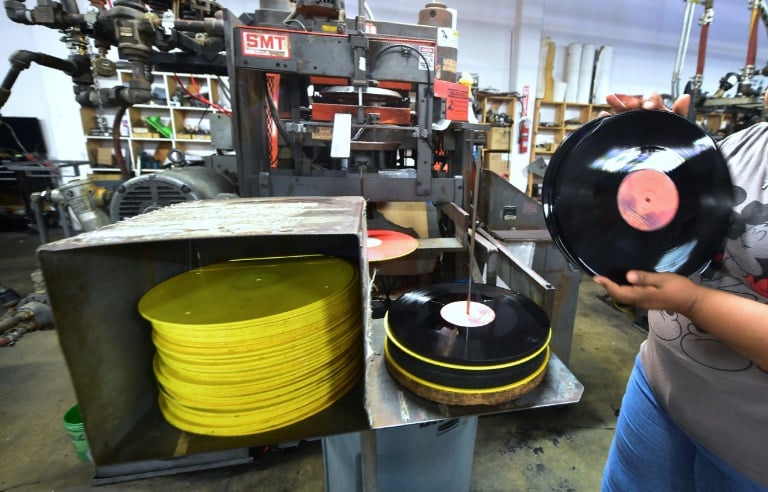Music sales grew at a robust pace for a third straight year in the United States in 2017 as listeners kept flocking to streaming outlets, an industry monitor said Wednesday.

Analytical firm BuzzAngle Music said that consumption in the world’s largest music market jumped 12.8 percent in 2017, well outpacing the 4.2 percent growth seen a year earlier.
On-demand streaming services led by Spotify are quickly replacing downloads on platforms such as iTunes, which shook up the music business a generation ago.
BuzzAngle Music found that nearly three times as many songs were streamed on an average 2017 day in the United States — 1.67 billion — than the 563.7 million tracks that were downloaded over the entire year.
Audio streaming grew overall by more than 50 percent in 2017 from the previous year.
In more good news for the industry, BuzzAngle Music said that 80 percent of audio streams came through subscription sites, as the music business encourages listeners to pay monthly rates rather than seek out songs for free online.
The growth reflects a reversal of the long rut in music sales following the rise of the internet.
But not everyone is cheering, with many artists complaining that they are seeing little of the profit.
Wixen Music Publishing, which owns rights to songs by artists such as Neil Young and The Doors, last week filed a $1.6 billion suit against Spotify, arguing that the Swedish company failed to seek proper licenses in its rush to build its catalog of 30 million songs.
And in a recent Twitter thread that drew wide attention among artists, Geoff Barrow of English trip-hop group Portishead said it was “almost impossible to make a living” through Spotify for musicians who do not figure out how to “work the system well.”
Spotify counters that it has provided a rare source of growth and helped bring new audiences to artists, who increasingly make their living off concerts rather than recordings.
Spotify faces a growing number of rivals including the streaming services of tech giants Apple and Amazon, as well as Paris-based Deezer and rapper Jay-Z’s Tidal.
– Vinyl booms, with different market –
While sales of full albums kept dropping in 2017, there was one big exception — vinyl.
Album sales on vinyl grew by 20 percent, keeping up the revival of the classic format that has been embraced anew by hardcore fans and collectors.

Album sales on vinyl grew by 20 percent in 2017 — good news for businesses like Erika Records in California
Vinyl buyers disproportionately bought rock and older titles.
The top-selling vinyl title of the year was a soundtrack to the superhero film “Guardians of the Galaxy,” which was first released in 2014 and featured songs by music legends such as David Bowie and Marvin Gaye.
The taste of vinyl lovers was sharply different from mainstream choices. Pop superstar Taylor Swift’s “Reputation” was by far the top-selling album of 2017, selling nearly 1.9 million copies, according to BuzzAngle Music.
Swift maximized sales by keeping “Reputation” off streaming services for its first three weeks — an increasingly unusual commercial strategy that only stars with a dedicated fan base can pull off.
Sales of cassettes — which have also found a renewed following, in part for their kitsch appeal — more than doubled in 2017, but at fewer than 100,000 copies, the format remains miniscule in the overall market.
The US sales are in line with global trends. The International Federation of the Phonographic Industry will release worldwide figures in the coming months.
Support Local Journalism
Add The Citizen as a Preferred Source on Google and follow us on Google News to see more of our trusted reporting in Google News and Top Stories.








